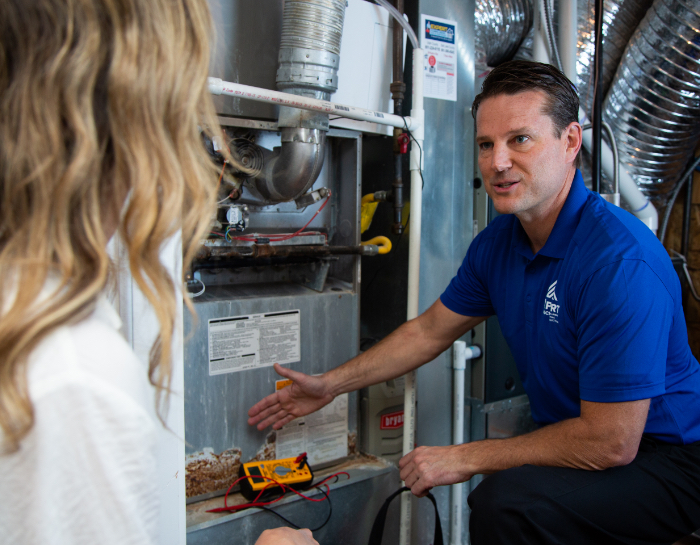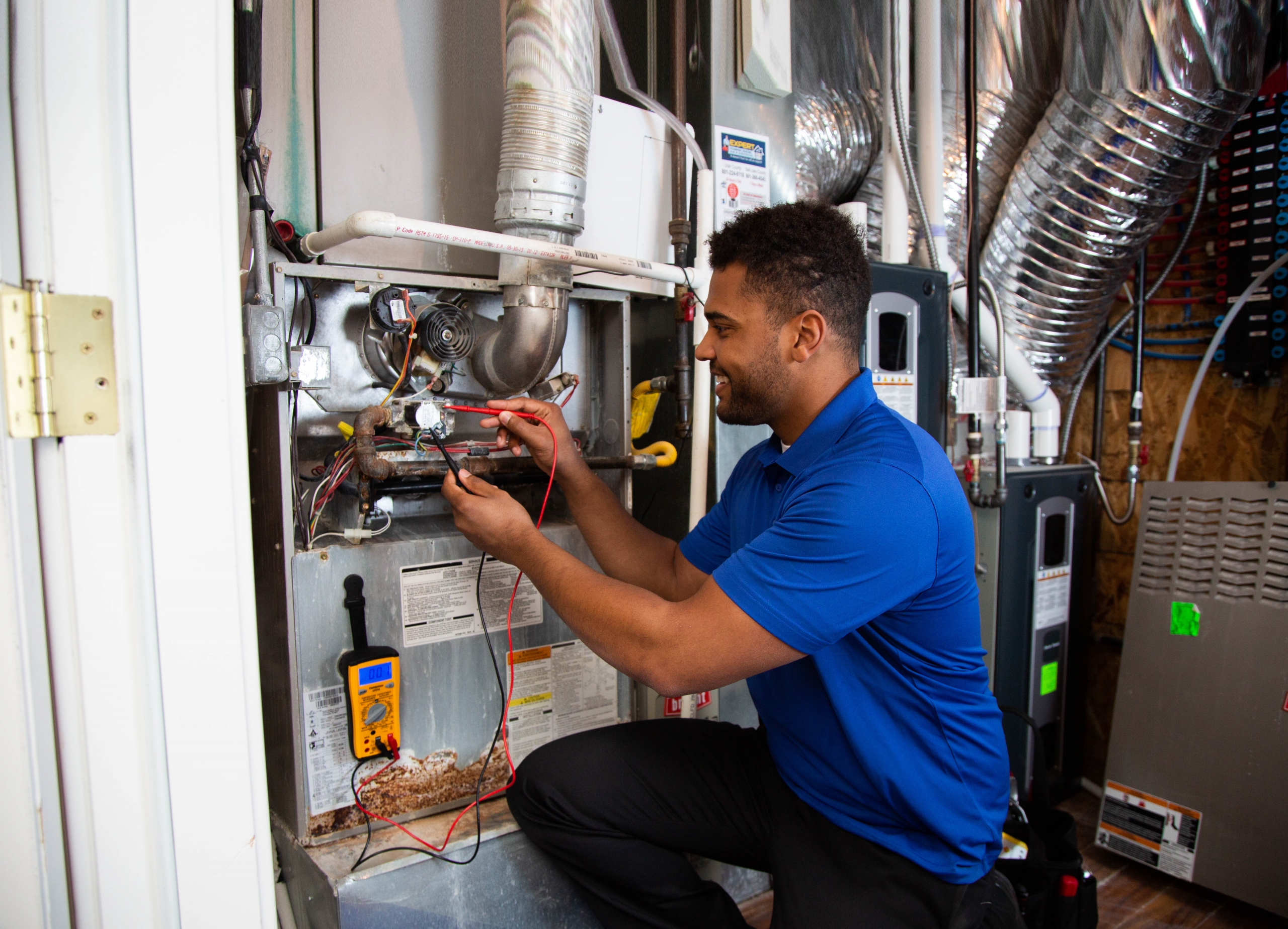HVAC System Lifespan
If you’ve ever experienced a cold winter or hot summer, you’re probably been thankful for your HVAC system. HVAC systems control the ambient temperature of your home, adjusting to either warmer or cooler depending on the outside temperature. When they’re fully functioning HVAC systems are incredibly useful, but when they aren’t, it can be a bit of a nuisance. HVAC systems require scheduled maintenance and like most things, have an expiration date.
How Long Should My HVAC System Last?
It is uncommon that your entire HVAC system will need to be replaced at one time. Because these systems are made up of various parts, the lifespans of each component will vary.
- Furnaces. The average lifespan of a gas furnace is about 15-20 years. While this isn’t necessarily a strict deadline, it offers a time frame to start considering a new unit. The lifespan of a furnace can also depend on its make and model. By asking an HVAC professional to look up the serial number generally found on the outside cover of the unit, you can learn useful information including its exact age. To extend the life of your furnace, regular maintenance and inspections are needed to ensure there are no pressing problems or damage.
- Boilers. The average lifespan of a boiler is 10-15 years. Like furnaces, the life expectancy is not a set number, rather a range that indicates when you should consider a replacement. Some may last longer and others may need an earlier replacement. Boilers are generally serviced annually. Consistent maintenance can keep everything running smoothly and potentially extend the lifespan of your unit.
- Air Conditioner. The life expectancy of an air conditioning unit can depend on a variety of factors. Most HVAC professionals estimate the average lifespan is between 10 and 15 years. Proper maintenance, including regular inspections and checkups, can save you both money and stress. Generally, AC units will come with warranties that incentivize consistent upkeep to fix emerging problems and extend the lifespan.
- Heat Pumps. Most heat pumps last about 10 to 12 years. When your unit nears the beginning of its expiration range, it is wise to contact an HVAC professional. They can assess the condition of your pump and either recommend a replacement or offer insight into how much time it has left. Like the rest of the HVAC system components, the best way to make the most of your heat pump is to keep up with regular check-ups and maintenance repairs.

How Do I Know If I Need to Replace My HVAC system?
Knowing when to replace an HVAC system isn’t always as cut-and-dry as looking at the average lifespan. There are a variety of signs and symptoms that may indicate your unit needs to be replaced.
- 50% Rule. A common rule of thumb in replacing HVAC units is the 50% rule. The basic idea of the rule is that when the cost of repairing your unit reaches 50% of its value, then it is generally ready for a replacement.
- Inconsistent Temperature. When your HVAC system begins to reach its limit, it will have trouble keeping your home at a consistent temperature. This is often credited to a variety of factors including clogged filters, cracked ducts, motor damage, or low internal fluid levels.
- Increasing Energy Bills. Slight fluctuations in your energy bills are normal. Your energy usage generally follows consistent trends depending on seasonal and weather variations. However, an unusually large spike in your bills can indicate a faulty or aging HVAC system. As heating and cooling units get older, their efficiency goes down resulting in higher, more expensive bills.
- Poor Air Quality. Your indoor air quality is actually rather dependent on the functionality of your HVAC system. Especially in the summer, your air conditioning system is what keeps the inside of your home fresh and dry. Faulty HVAC systems often result in emergent mold, mildew, and increased humidity.
- Uncommon Smells. For the most part, your HVAC unit should be relatively odorless. Uncommon smells could be an indication that your system needs a check-up. Emerging odors can range from minor, fixable issues to an indicator that you’ll need a full replacement. If you notice an odd smell, the best course of action is to turn off your unit and call a professional.
- Unusual Sounds. Similar to the smells, HVAC systems are generally not very noisy. While it is common to hear the rumbling of the air passing through the ducts, any major, unusual sound could be an indication to call a professional. Often HVAC systems make grinding or squealing noises when they begin to age and function less effectively.
How Much Does It Cost To Replace My HVAC System?
The cost of replacing an HVAC system can vary based on a number of factors. These include the make and model of your system if you’re looking to replace a specific component or the entire system, and the installation company that you choose to hire. On average, full HVAC system replacements cost about $5,000 to $10,000. Depending on which component you want to replace, the price tag can differ. Air conditioning units are among the most expensive, costing about $3,500 to $7,500. Heat pumps generally cost between $4,000 and $7.000, while furnaces run from $2,500 to $6,500.
Expert Services- Plumbing, Heating, Air & Electrical Is Here To Help
Expert Services- Plumbing, Heating, Air & Electrical has been serving Salt Lake and Utah county for over 10 years. We offer quality, dependable, and affordable HVAC and plumbing services 24/7. Our full-service experts can aid you in HVAC maintenance, repairs, as well as full installations and replacements. Additionally, we also provide plumbing and electrical services.
